Star Entertainment, the watchdog and business empire’s life-or-death moment
The chips are down at Sydney’s Star casino amid a business life-or-death moment. The inside story on a business hanging by a thread and a regulator circling.
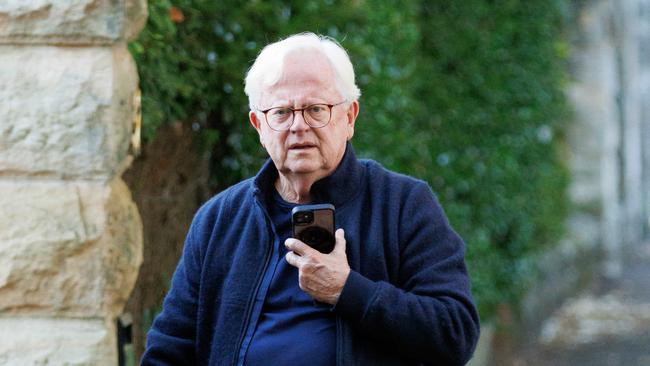
On a sultry Monday morning in late February, David Foster’s mobile phone started ringing shortly before 9.30.
Foster was in Sydney preparing for what was shaping up to be a densely packed board meeting to sign off on the latest accounts of Star Entertainment.
The former career banker was newly appointed chair of the wayward operator of Sydney’s three-decade old casino as well as two in Queensland, The Star Gold Coast and the new-mega Brisbane casino that is nearing completion.
While the chips were again flying back and forward on the gaming room floors of the properties after the pandemic shutdown, Star’s future was hanging by a thread. Foster’s job was to help secure it.
Star Entertainment had found itself stranded in purgatory after its former management was left unstuck by a damning probe of its Sydney casino nearly two years earlier.
This investigation had uncovered all kinds of missteps through almost a decade, after the chase for the junket dollar led Star to court well-financed crooks and find ways to sidestep money-laundering rules.
Star had been the latest Australian casino domino to fall; rival Crown also imploded under a regulatory probe that had too been kicked off by NSW. The damning revelations delivered a humiliating blow to Crown’s billionaire backer James Packer, who quickly made a full exit from the long-held business.
In the wake of Crown’s review, Star’s scheduled five-yearly licence check-up morphed into something more pointed under retired barrister Adam Bell SC. Revelations through public hearings led to a line of Star executives quitting, including then boss Matt Bekier. After Bell’s highly critical findings were released in February 2022, the casino was effectively stripped of its licence in NSW.
Queensland followed suit with its own suspension after holding its own inquiry, which uncovered similar behaviour. Star’s very existence – its coveted casino licences – were now in the hands of a special manager until it could prove it had changed its ways. If it couldn’t, the right to operate would be lost permanently.
On that Monday morning, calling Foster’s mobile was the chief commissioner of the newly minted NSW Independent Casino Commission, Philip Crawford. The conversation was sharp, but civil, with Crawford doing most of the talking.
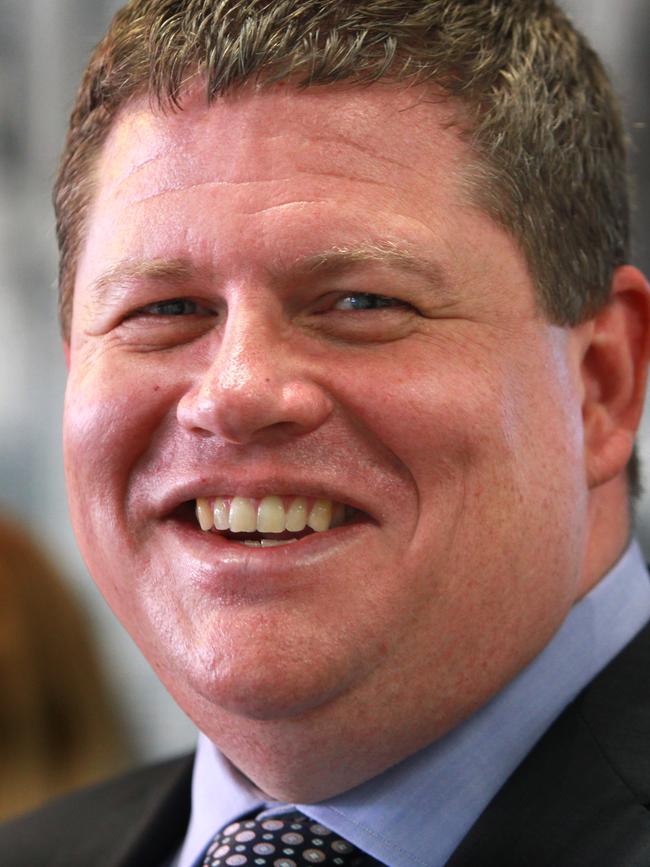
He was disappointed at Star’s efforts in trying to pick itself up off the canvas and believed the casino and its management led by recently appointed boss Robbie Cooke wasn’t taking cultural reform efforts seriously.
Crawford still didn’t like what he saw in Star. And so 18 months after Bell delivered his damning 600-plus-page, three-volume findings, Crawford was ordering another 15-week review.
Bell was coming out of retirement to do the same job for the second time. Foster, who had steered Suncorp from its near-death experience in the global financial crisis, was stunned.
Just 10 minutes later, a formal email from Crawford landed in the inboxes of Cooke and Foster. Bell Two would have powers of a royal commission. In the email, Crawford, a former runabout Sydney divorce and insolvency lawyer, laid out his concerns blow by blow. Star wasn’t moving ahead with the “deep structural change” needed.
Of most concern was it appeared much of the progress so far could be put down to the work of special manager Nick Weeks, the former NRL integrity executive, who Crawford had hand-picked more than a year earlier to hold Star’s casino licence.
The second Bell inquiry would be an independent assessment on how Star was going in its efforts to regain its licence ahead of the expiry of Weeks’s appointment on June 30. Tight deadlines on the initial appointment meant Weeks’s term had already been extended twice.
Star’s CEO was blindsided by the email. As he attempted to digest the implications, he hurriedly ordered Star’s shares to be halted on the ASX just 15 minutes before they were due to open.
It wasn’t until later that day that Star got the full terms of the inquiry and was able to update investors what little it knew. It wasn’t until the next day when Star’s shares started trading again that they collapsed 20 per cent, showing the shock of the decision.
Foster and Cooke made the call to delay the release of Star’s accounts for a week.
‘Forced out’
From the moment when Bell’s findings were handed down, Star has publicly accepted the magnitude of its wrongdoing and the need to take its bitter medicine.
It has also accepted it needed to change its ways and be subject to stronger scrutiny. But there are questions within Star as to the point at which too much regulatory power needs to be checked and balanced with the longer-term viability of the business. It will come to a head on Monday when hearings for the second Bell inquiry are scheduled to begin, with the casino’s audited accounts expected to be put under scrutiny.
The 15-week inquiry represents much more, with Star’s very future – and developments in the heart of Sydney and Brisbane – on the line.
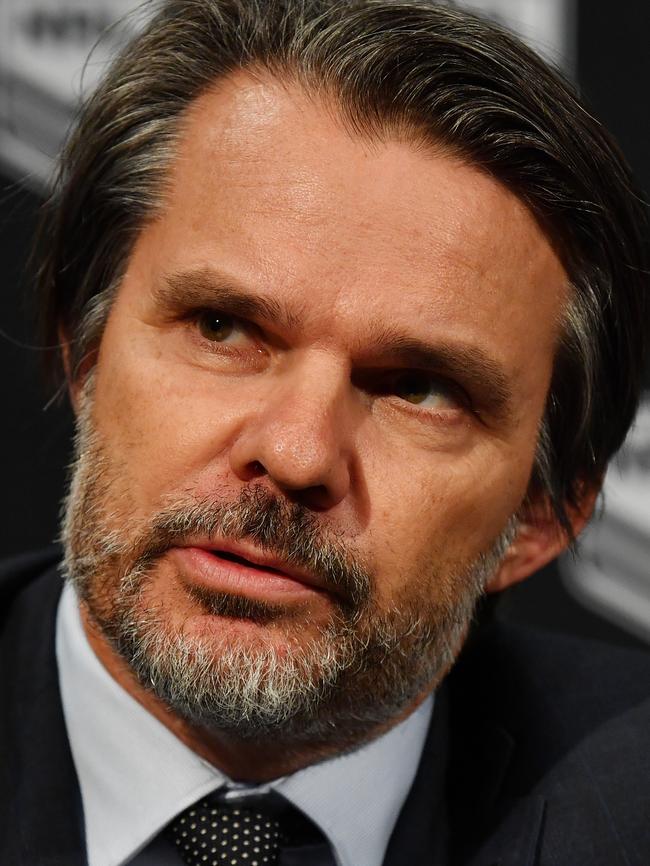
The news of the second Bell inquiry forced Cooke and his management to cancel back-to-back meetings Star had planned with investors that week. And looking ahead, the timing of the new Bell hearings from April was set to clash with time-sensitive remediation work Star and its senior managers were doing in Queensland, where it was well along the path of getting its licence back.
Even so, Star issued another statement saying it welcomed the new Bell review and intended to participate fully in an “open, transparent and facilitative manner”. The thing was, Cooke’s name was kept off the ASX statement.
It can be revealed Crawford had briefed members of the Minns government, including Gaming Minister David Harris, Treasurer Daniel Mookhey and their senior staffers, including Treasury officials, about plans to hold the second Bell inquiry, some 12 days earlier. It was after this lunchtime meeting that participants walked away with the belief Crawford wouldn’t give Star its licence back while Cooke remained chief executive.
Just four weeks after the Bell inquiry email arrived in Cooke’s inbox, the cleanskin CEO who had brought Star back from the brink resigned.
Crawford declined to comment. A spokeswoman said it would be inappropriate to discuss events that occurred while the Bell Inquiry was under way, or comment on individuals who had recently left The Star.
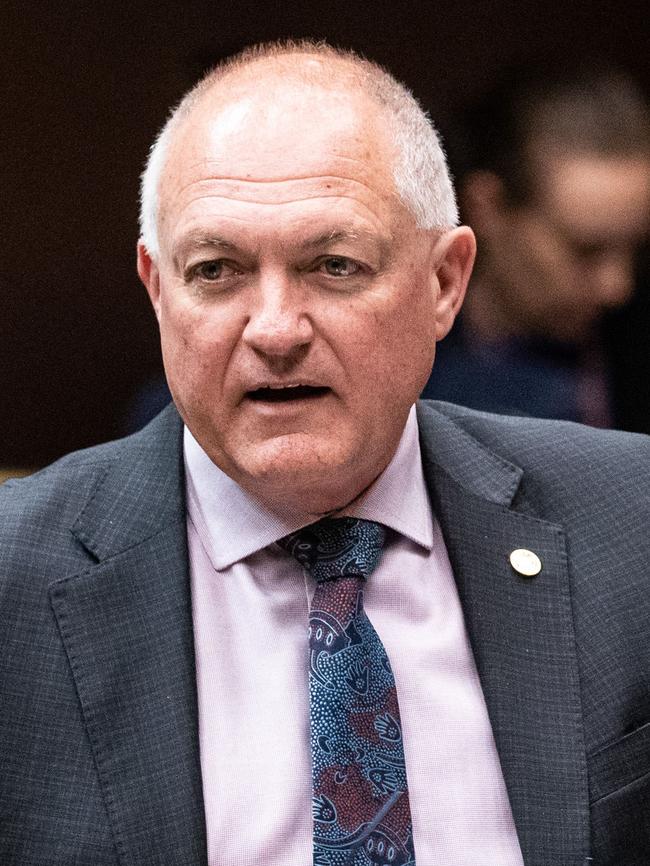
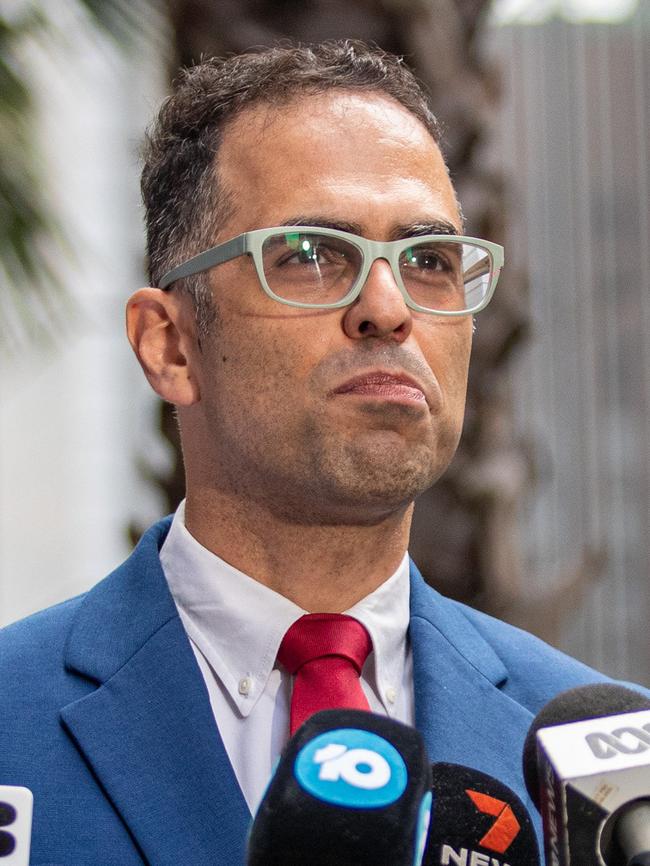
It wasn’t the first time Cooke had offered to resign. It can be revealed that Crawford had been pushing Star’s chairman for Cooke to go towards the end of last year. This had come back to Cooke and the CEO had offered his resignation in December, but Foster wasn’t having a bar of this.
However, from Crawford’s vantage, the sign of strong support for Cooke inside Star’s boardroom may have been a signal that the wayward casino was starting to push back on him. Over summer, Crawford formulated Bell Two.
Bell was coaxed out of retirement for a reprise of his review. Bell agreed to the 15-week program and will be paid $7000 a day, with the total run likely to lead to a $525,000 payment.
Star issued a profit warning as part of its latest accounts on Friday ahead of the first hearing to keep its shareholders informed.
A NSW Independent Casino Commission spokeswoman said the new Bell Inquiry would give the commission a chance to revisit Bell’s 2022 recommendations through a formal and fair assessment of The Star’s progress to regain its casino licence.
“There is much at stake for The Star, so the NICC is giving the casino every chance it can to demonstrate whether it has the capacity and competence to achieve suitability,” she said.
Out of the ashes
The sudden exit of Cooke marked the third chief executive Star had lost in two years. However, Cooke’s departure following his attempt to challenge a regulator on points of process now raises serious questions.
It puts a focus on the immense and unchecked powers granted to the NSW Independent Casino Commission, which have come out of the ashes of the old state gaming and liquor regulator.
Those who have dealt with Crawford describe the chief commissioner as an “unchecked ego”. According to those inside the casino, they believe if he continues on this path he will tear down Star. They say a sign of this is Crawford dragging out the approval of Star’s remediation blueprint.
For almost 20 months, the NICC has been sitting on this detailed road map that Star prepared and submitted. It outlines hundreds of cultural and governance changes needed inside the business. Star has been quietly pushing ahead with the complex program, but in official terms it hasn’t even been given the green light to move to the reform starting line. Queensland approved a remediation plan late last year.
A string of announcements over the stock exchange in the past two years also lays out the delicate cat-and-mouse game Star has been playing with its regulator.
There is concern among some government players that the remediation plan will never be approved, meaning Star Sydney won’t have a chance at getting its licence back.
Crawford is an effective media operator and shines in the spotlight. He is at ease posing for photos or back-to-back radio interviews. In one recent profile he discussed where he went to school (the prestigious Kings School in Parramatta). He studied law at Sydney University and on graduating joined the Martin Place law firm Henry Davis York as a clerk then worked up to a solicitor.
Following a short stint as a divorce lawyer outside the firm, he returned to Henry Davis York in the early 1980s becoming partner as fast money flowed through Sydney’s streets. Ultimately, he became chairman of the firm, a position he held for five years.
It was through Henry Davis York that Crawford formed close links with Sydney’s close-knit insolvency cabal.
The state’s top casino cop even has an occasional side hustle, overseeing a practice that offers mediation anywhere from big commercial disputes to family breakups. Crawford is a member of the elite men-only Australian Club in Sydney, a venue he favours for city meetings.
Multiple people to whom The Weekend Australian has spoken and those who have worked with him say Crawford’s best defence is to attack – particularly through the media – and he is driven by having a perpetual enemy.
‘Eliot Ness’
Others question Crawford’s apparent desire to use the NICC to push regulatory boundaries. Those who have had multiple dealings say Crawford models himself as an Eliot Ness-era Chicago prohibition enforcer.
It is understood on one occasion Crawford was urged by the gaming minister to tone down public comments made against several Star executives.
“What’s his end game here? Because everyone else is just trying to fix this thing,” one former Star insider asks.
Some warn the relentless curve balls Crawford has thrown at Star over two years are putting the casino and more than 8000 staff at risk. There is a view developing inside the casino that Crawford is going to make it very difficult for Star to regain its suitability – let alone even have a chance to prove it under a new management team.
This threat has forced the casino to reassess longer-term investment plans, which has knock-on effects for the city’s tourism and much-needed development of the unglamorous Pyrmont.
Star has medium-term plans of a $1bn overhaul of the precinct, including ambitions to build another tower with luxury residential apartments. It also wanted to build a 1500-seat theatre, giving Sydney a chance to attract more Broadway-style musicals.
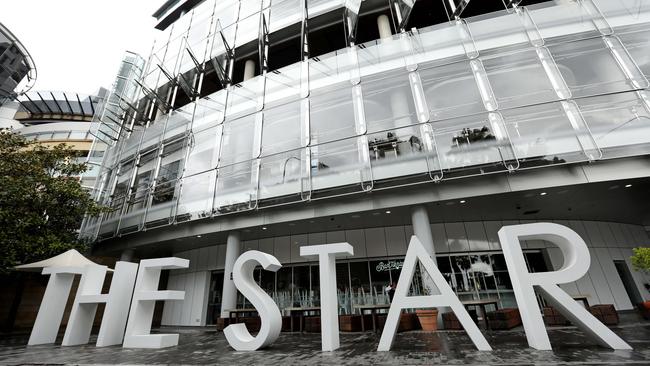
There are bigger implications for Star and its investors in the loss of the Sydney licence. It would represent an almost fatal blow for Star, given the casino’s $450m debt facility is structured around having a casino in Sydney and in Queensland. A collapse in Sydney that brings down the broader company would have massive implications for its multibillion-dollar Queens Wharf development in Brisbane, which is scheduled to open later this year.
For all the tough-talking there also remains a gnawing question over Crawford. In setting the terms of reference to multiple casino inquiries, the NSW gaming cop and his regulators have been able to avoid formal scrutiny, despite claims that the organisation he oversees was fast asleep at the wheel while Star’s wrongdoing happened. The Bell review excluded any focus on the Independent Liquor & Gaming Authority. The terms of reference of the second inquiry also avoids any scrutiny of the new casino regulator.
Meanwhile, the Bergin review into Crown took place even though the Packer-backed casino had not taken a single gaming dollar in NSW, and so its bad behaviour was far out of the ILGA’s remit. It is understood the Victorian regulator was incensed that its dirty linen was being hung out by a scrappy NSW pubs regulator.
Still, Crawford should take credit for getting the ball rolling on the Bergin review after revelations of Crown’s links with criminals through the junket trade at its Melbourne and Perth casinos. It was the Bergin probe that landed a powerful hit to Crown and unmasked much of its wrongdoing, forcing a top executive cleanout. And out of Bergin came the recommendation that a more sophisticated regulator was needed in NSW to oversee the likes of Star and new entrant Crown, which was still building its Barangaroo casino in Sydney.
Crawford was quickly appointed by the then NSW gaming minister Kevin Anderson as the full-time chief commissioner of NICC, a powerful position that came with a $450,000 salary. This was a significant step up from the part-time role of the ILGA chair, a statutory position that paid approximately $85,000.
The rapid elevation of Crawford as NICC chief commissioner was not advertised nor subject to a review process, but it was made following a recommendation of the ILGA, the same organisation that Crawford chaired. It is understood there was broad “support for Phil” inside the then Perrottet government’s ranks.
Crawford has previously defended his position, saying he inherited a weaker regulator when he commenced in 2016.
Star “had been flying under the radar and the regulator needed more powers, and now we have got them”, he said in one interview on ABC radio. He has also said Star was doing its best to “mislead and deceive” the regulator.
Still, over the five years of Star’s wrongdoing uncovered by Bell, Crawford met chairman John O’Neill eight times and these were informal meetings. It is understood he met just four times with the then chief executive, Bekier, through this period.
Even in the past two years through the rebuild, Crawford and his commissioners rarely came to Star casino and only occasionally met the board.
The entire monitoring of Star’s recovery had been outsourced to special manager Nick Weeks, who holds Star’s licence.
The outsider
The Brisbane-based Cooke was a casino outsider when he joined Star in October 2022 on a rescue mission.
A search for a new chief executive had been launched by former chairman O’Neill earlier that year, and Cooke came first on the headhunters list. Former Virgin Australia chief executive Paul Scurrah had been eyed for the role but had just commenced with DP World. The appointment was seen through by Star’s then interim executive chairman Ben Heap after O’Neill had stood down.
Cooke had extensive history of working with both state and national regulators through his previous roles running the Queensland-based gaming operator Tatts (now The Lottery Corp) and more recently at fintech Tyro, which has a banking licence that means it comes with the intense regulatory scrutiny of financial watchdog APRA.
Cooke too, had steered Tyro to a $1bn-plus stockmarket listing in 2019, a process that involved working through a process with securities regulator ASIC. In the early 2000s he took online travel site Wotif.com to an ASX listing.
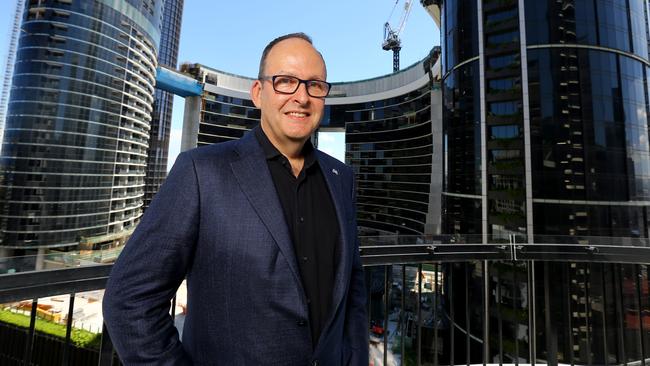
“He has a very, very strong reputation and is known to be able to drive cultural change,” says one senior banker-turned-director who has worked closely with Cooke.
“He is not a headkicker by any sense. He is relationship-driven and has what it takes to really turn organisations around”.
Those who worked with Cooke at Star said the chief executive was always in the office before 5am and usually worked seven days. Some days when the pressure was on, Cooke would arrive at the office as early as 2am. He commuted between Sydney and Brisbane, where his young family is based.
On Cooke’s first day on the job, Star was hit with a $100m fine by Crawford and a separate $7m bill for the running of the Bell Review. Soon after, he was hit with higher tax rates from the NSW government and needed to quickly stabilise Star’s balance sheet through an $800m equity raising that he remarkably got away.
He followed this up with another $750m raising last year to give Star all the financial runway it needed to make far-reaching changes to its operation.
Last October, Weeks submitted a confidential 50-page annual progress report to Crawford. It had largely ignored any headway the casino was making in its turnaround to focus entirely on what still needed to be done. A month later, the confidential report was condensed into a 10-page document dated November 24 that made a more damning conclusion that Star was falling behind.
When both copies of the report were given to Star’s board at the same time in November, Cooke was understood to be furious. He strongly disputed the findings, telling directors it was subjective, there were gaps in reporting and the report was riddled with factual errors. Cooke set about responding to the report in a stinging line-by-line rebuttal. This criticism gave Crawford a new target.
It is understood the reports focused on only a handful of remedial action workstreams that were yet to be finalised, largely ignoring the nearly two dozen already completed.
During the past year, Cooke had been arguing his staff needed more time for some of the more complicated technology rebuilds. The progress report prepared by Weeks was highly critical about whether Star was moving fast enough to replace roles and questioned whether the board was getting the right sort of information about the business.
Cooke declined to speak to The Weekend Australian. A spokesman for him cited the former CEO’s intention to co-operate with the Bell inquiry in full.
The spokesman referred The Weekend Australian to a statement made by Cooke and released to the ASX on his exit on March 22: “Whilst I find the position exceptionally disappointing … I take comfort in what we have achieved as a team over the last 16 months, and I’m certain the company is now on the right path.”
A change in leadership provided the best opportunity for the business “to navigate the regulatory pressure it is facing”, the statement said.
More pressure
The concern inside Star’s boardroom was this was the sum of information going to Crawford, who would then use this to determine whether Star should get its licence returned.
The report gave a strong endorsement of Weeks, the independent manager who prepared the report. He is scheduled to appear as a witness at the Bell inquiry from next week.
The confidential reports he compiled have been submitted to the Bell inquiry. An NICC spokeswoman said it had not yet been determined what materials would be published.
In two years, more than 40 top executive roles at Star have been replaced, while hundreds have been recruited into compliance, anti-fraud and monitoring roles.
While Star’s entire executive team turned over in the second half of last year, it got the sense that Crawford wanted a handful of staffers who worked at the casino during the past five years gone. These included communications boss Peter Jenkins and former head of customer relations George Hughes as well as newly promoted Gold Coast casino boss Jessica Mellor. None had findings made against them by Bell One, nor did they have line responsibilities for the wrongdoing.
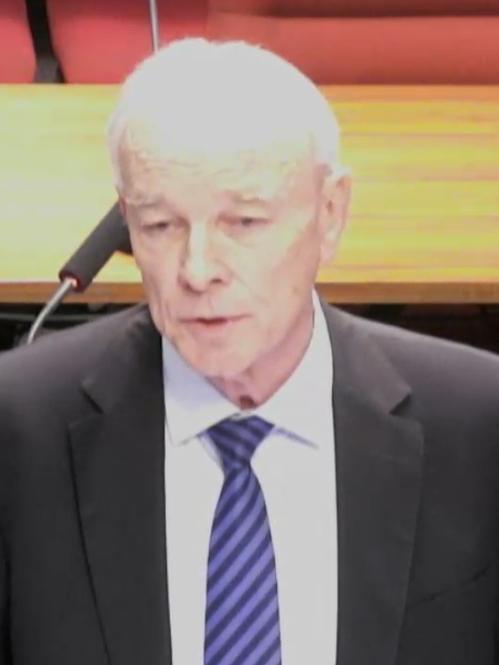
Cooke dug in, telling his board it was simply “not right” to punish good characters who weren’t involved nor had responsibility for the problems of the past. Jenkins and Hughes resigned in March, shortly before Cooke left.
It can be revealed Weeks, who previously worked with the NRL’s integrity unit, is collecting nearly $1.8m a year for his Star role. Half of the payment is for his work in Sydney with the balance going for his work in Brisbane, through a non-operational monitoring role.
Weeks, who is indemnified from legal action by the NSW government, has a team of six working for him. One of his deputies is understood to be paid more than $600,000 for his work on Star and others in the team are closer to $500,000. The bills are all footed by Star.
Weeks came through a boutique advisory firm Wexted, founded by Sydney insolvency figure Joseph Hayes. Crawford and the new NICC board made the appointment. It is understood the employment is independent of Wexted, although he would return to the firm at the scheduled end of his employment.
“Wexted did not raise conflicts of interest in respect of The Star, its shareholders, associated entities, and close associates,” an NICC spokeswoman said.
On Monday, Star faces its second round with Bell. And with Cooke gone, the Star board fears Crawford, through the new inquiry, will be coming for Foster.
This time, the stakes are even higher for The Star.
Do you know more? johnstone@theaustralian.com.au






